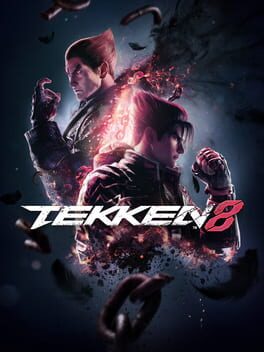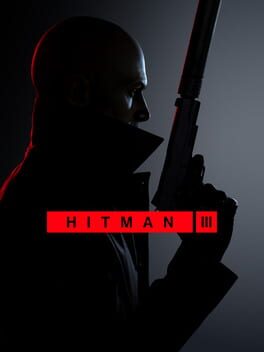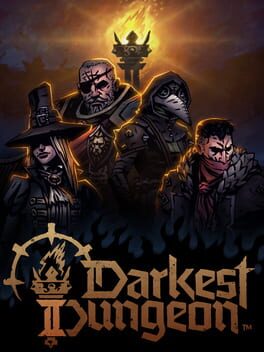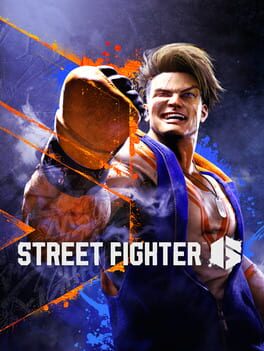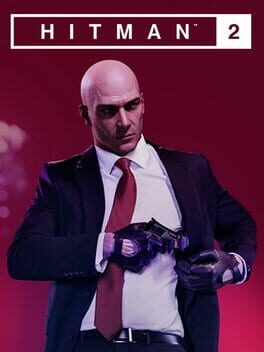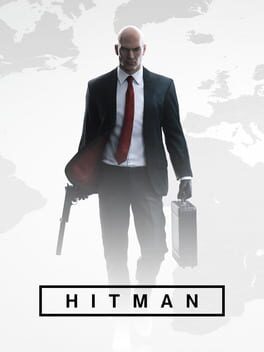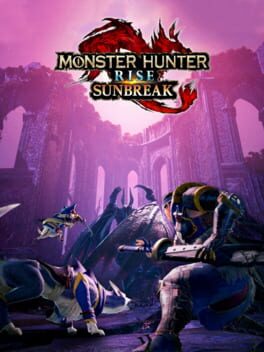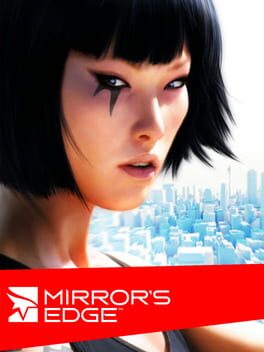Benjamigo
2019
The universe that The Oldest House and the Federal Bureau of Control presents is full of urban legends, crazy theories and a lot of strangely silly objects.
What Control does with all of this is a marvelous narrative that takes us through iconic and unique places, you can see the inspiration that drives Sam Lake to construct a universe with such an abstract narrative; a story that slowly makes us feel invested in the world around, and at the same time helps the player to slowly connect the dots of what's happening to them and around them masterfully. The game has a lot of backtracking, and it uses it to its advantage, giving you side-quests that help the player progress more quickly to gain better upgrades for each ability and stats, and also giving you amazing short storylines around altered objects, taking you to different places, and making you fight different bosses, which gives the game a pleasantly Metroid-Vania feel.
The combat is something that bothered me in the beginning, but as you begin to collect new power ups that even unlock new abilities by combining them, the combat starts to feel more complex, a big setup of tools to play with and tackle the situations the game gives. It's good enough to make every little encounter feel satisfying, all though it can get repetitive from time to time.
The universe that Remedy is slowly connecting between Control, Alan Wake and Quantum Break is something that is starting to get my attention thanks to games like this. Control was a pleasant surprise, and it makes a great addition to said universe. With a solid gameplay and a great story, Control stands out as a swing back after Quantum Break didn't make the cut.
What Control does with all of this is a marvelous narrative that takes us through iconic and unique places, you can see the inspiration that drives Sam Lake to construct a universe with such an abstract narrative; a story that slowly makes us feel invested in the world around, and at the same time helps the player to slowly connect the dots of what's happening to them and around them masterfully. The game has a lot of backtracking, and it uses it to its advantage, giving you side-quests that help the player progress more quickly to gain better upgrades for each ability and stats, and also giving you amazing short storylines around altered objects, taking you to different places, and making you fight different bosses, which gives the game a pleasantly Metroid-Vania feel.
The combat is something that bothered me in the beginning, but as you begin to collect new power ups that even unlock new abilities by combining them, the combat starts to feel more complex, a big setup of tools to play with and tackle the situations the game gives. It's good enough to make every little encounter feel satisfying, all though it can get repetitive from time to time.
The universe that Remedy is slowly connecting between Control, Alan Wake and Quantum Break is something that is starting to get my attention thanks to games like this. Control was a pleasant surprise, and it makes a great addition to said universe. With a solid gameplay and a great story, Control stands out as a swing back after Quantum Break didn't make the cut.
2024
Tekken has always been a special game for the gaming community. Not only is one of the big three of the fighting game community alongside Street Fighter and currently, Guilty Gear, but it's also a game that revolutionizes the 3D Fighting game genre.
Tekken 8 comes up with a full package, a diverse roaster with amazingly redesigned characters from the series, as well as really flashy newcomers, a somewhat decent story mode with great nostalgia trips from old Tekken games, which is really rare in a fighting game, but it looks like everyone is starting to catch up, and an amazing battle system to duke it out against other players, the online mode has an amazing net-code in comparison to Tekken 7, feels more responsive and performs better overall, but it can be tricky sometimes.
If you're new to the series, Tekken introduces a really well-crafted training mode, with even ghosts you can download to practice matchups and gain a tactical edge against your rivals, it also features a more accessible controller, but in comparison with Street Fighter 6, it doesn't do much to make the game more comfortable to play, and easier to learn and master. Even with that in mind, Tekken is a really interesting game to get into right now, not because it's accessible, but because boosts the creativity and hype you can put on the game when you play against someone else, or even by yourself.
Tekken 8 comes up with a full package, a diverse roaster with amazingly redesigned characters from the series, as well as really flashy newcomers, a somewhat decent story mode with great nostalgia trips from old Tekken games, which is really rare in a fighting game, but it looks like everyone is starting to catch up, and an amazing battle system to duke it out against other players, the online mode has an amazing net-code in comparison to Tekken 7, feels more responsive and performs better overall, but it can be tricky sometimes.
If you're new to the series, Tekken introduces a really well-crafted training mode, with even ghosts you can download to practice matchups and gain a tactical edge against your rivals, it also features a more accessible controller, but in comparison with Street Fighter 6, it doesn't do much to make the game more comfortable to play, and easier to learn and master. Even with that in mind, Tekken is a really interesting game to get into right now, not because it's accessible, but because boosts the creativity and hype you can put on the game when you play against someone else, or even by yourself.
2020
Baldur's Gate 3 stands as one of the biggest achievements in gaming history and mostly for the traditional role playing games. As a game that has almost flawless gameplay, letting its player or players do almost whatever they want, in the most literal way i must add, but its story and characters makes this adventure unique and exciting.
Baldur's Gate 3 is a must play, even if you're not into D&D, turn based combat or high classic fantasy, you're going to enjoy your stay, even if you don't complete your journey, you'll have memorable stories to tell.
Baldur's Gate 3 is a must play, even if you're not into D&D, turn based combat or high classic fantasy, you're going to enjoy your stay, even if you don't complete your journey, you'll have memorable stories to tell.
2023
As a pretty passionate fan of western RPG games and a certainly die-hard fan of Bethesda games, I can safely say, after spending at least 80-ish hours playing the game, exploring planets, finishing the main quest, playing a couple of side quests, faction quests, and searching a lot of stuff I won't spoil you about, I can say Starfield is a pretty divisive game for me. I'll try to keep it brief, but I'll try to summarize the stuff that, for me, are key to understand that divisive feeling.
The Good Old Bethesda Fashion
Starfield certainly is a Bethesda game, it has all its flavors condensed in one, massive game. You could say they took every aspect that made their games stand out individualy, procedural generation to create even more gigantic chunks of maps in every planet, decent and engaging factions to take part of, amazing soundtrack, loot mechanics that help you craft items and upgrade them, and fairly immersive roleplaying. Sounds about good, right?
Well, yes... If you truly love Bethesda Games.
A lot of gameplay mechanics and game design decisions can feel rusty and outdated by today standards, there's a lot of stuff that fit in that description. Lots of loading screens, janky animations, awful AI, questionable UI design, there's a lot to digest here. All though those problems don't mess with the game in a Cyberpunk-2077-Release type of fashion, but it certainly holds back every potential the game has to be great and stand out from other ARPGS and WRPGS.
The Wasted Wonders Of Exploration
It is pretty well known, and I also mentioned it previously, that Starfield uses procedural generation for the planet surfaces and maps, but the "handcrafted" content is put randomly on those generated areas.
All though the planet designs are pretty nice, with a notable study behind every one of them, since Bethesda stressed how much they did research to make the game as accurate as possible when it comes to planets, the exploration doesn't feel as great as I imagined. As a fan of Bethesda Games, I c an say, even if the game is not that good (Ex. Fallout 3) and feels empty, when you cross over a point of interest, you usually get a pretty big reward for going there, you find a new quest, a unique weapon, or at least, a great chunk of environmental storytelling, here in Starfield, things have changed a bit.
In my experience with the game, I felt that the point of interest get way too repetitive, even the handcrafted content gets repeated pretty often, all though there's some twists to it in some ocations, they feel sparse, few and far between.
The tale of Constellation and others: The questlines of Starfield
I think this is the part where Starfield shines the most. The settings and stories told in this game are, maybe for me, the most interesting stories Bethesda has told since Morrowind.
The main quest, this one being the search for the Artifacts and their meaning with Constellation, is pretty solid. All though it starts pretty slow, mostly because it's a tutorial to the vast systems that are present on this game, but as soon as picks everything up, it truly shines as one of the most cool, unique and well written Bethesda main stories to date. Unfortunately the potential of Constellation is held back mostly for the cast of characters, those being barely interesting excluding a couple of companions you meet throught the main story (Barret, Vasco and Andreja, love y'all!), the ending of the quest is also one of Bethesda's best, if not the best ending of any storyline they ever made.
Starfield also offers a wide variety of factions, storylines and side quests to take part of. For my first experience I focused mostly on the Crimson Fleet (which was truly a great questline), all though I quested a bit with the Freestar Collective and Ryujin Industries. I can safely say, the combination of the new persuation systems, backgrounds and traitrs make the experience more personalized and fun.
The random events are also great, but unfortunately they're really easy to miss, specially the random questlines that you can find in space, mostly because most of the people will skip being in space and setting course to all the planet orbits because the fast travel in this game can feel even invasive.
The Gameplay and the Dillema of Bethesda
This game is big, and not only for its scale. Starfield is a game that introduces new mechanics and a fully new gameplay section, this one being the Starships.
As expected of any Bethesda game, the customization is off the roof, there's a lot of stuff you can upgrade, customize and make it as yours as it can be, and even a great number of perks to back it up, but that can be easily missed for the lack of guidance and tutorials around it, this being the same mistake that Fallout 4 did with its weapon, armor and settlement customization systems. But even taking that in mind, the system feels more refined, intuitive and easy to use once you get the hang of it, which for me makes it a bit problematic for its lack of introduction.
The shooting in this game is the biggest stale of everything gameplay-wise. Even though is good, just as Fallout 4 shooting and gameplay, the fact that the AI lacks of any sense of... anything really, makes the game extremely easy, not as easy as Fallout 4, but still easy non the less, AI is really easy to cheap off. When it comes to melee weapons, though, this game is dissappointing, i'd say is the most lacking melee combat Bethesda has done, barely detailed with a really significant lack of animations and variety in weapons and weapons movesets, I can't say anything about the unarmed build since I wasn't able to play it.
There's also a pretty familiar power system, remanecent from Skyrim. All though this is introduced a little bit late to the game, the powers, excluding a couple of them, are not that good. Unlike Skyrim where you could make strategies of your own using the Shouts or simply spamming Fus Ro Dah in front of a cliff for a secure instant death, in Starfield you have pretty unispiring powers that feel like Mass Effect augmentations, but downgraded.
The starship system is the brand new gameplay introduced in this game, and I gotta say, it's amazing and full of detail and love, but it comes with a really bad catch that makes me a bit sad. The combat system is great and feels great, the fact that takes a bit of that FTL-esque approach to the starships combat makes it even more fun and exciting, perks around this are also a great way to enhance the experience of fighting in the starships.
Flying them is pretty nice too, but this is where the catch comes in play. You barely fly in your starship outside of combat, you can only fly around a planet orbit and occasionally destroy some asteroids here and there for resources, but thats it for that part since the game doesnt have a real time landing system for the planets, and lacks of starship flying on-orbit too, which makes this the most limited system in the game despite being the most detailed and polished of all.
The problem of having a shit ton of gameplay variants without having a particular focus on one, and managing to make it as good as it can be, is a problem persistent in Bethesda's design, making it a "jack of all trades, master of none" situation very similar to Fallout 4 that makes me feel pretty dissappointed.
NASAPUNK and the Space Opera: The Design and Music of Starfield
Since Bethesda is a company that loves detail and making every single thing in the world stand out, I wanted to take a brief section to talk about this since I always liked the work Bethesda does to make their games feel alive, unique and immersive when it comes to designing the world and making you feel part of it using its different artistic methods.
The design in Starfield is something that for me, stands out as one of the most unique designs around a space/adventure themed piece of media. Approaching a pretty familiar visual style with their clothers and star suits, looking pretty much alike to what we see today, but with different variants in designs that make all of them a joy to see and detail. But even with that in mind, I feel that the design can fall off behind some Bethesda titles, those being a couple of Elder Scrolls games (Morrowind and Skyrim) and Fallout: New Vegas, but still, it has enough uniqueness and love to stand out.
The music is once again, directed and composed by Inon Zur, which is now the Bethesda mainline compositor since their departure with Jeremy Soule. Sadly the music is not as great as I thought it would be, but it has enough substance to help you feel invested in the universe you're exploring and taking part of.
Starfield and the Test of Time: My Final Thoguths
Todd Howard said in several interviews that he wanted Starfield to last as long as Skyrim has done it for the past 12 years. Not only with upgrades and expansions coming from Bethesda themselves (that I want to see soon, personally), but also coming from their dedicated modding community.
In that aspect, Starfield seems like an endless playground where modders can create almost everything, the potential behind this game foundation is probably one of the biggest and most interesting out there right now, but as usual, is something that takes time to develop.
The foundation of this game is something that has a lot of solid and amazing aspects, but the fact that some design choices and directions that Bethesda took making this game limited them to a point that they're foreshadowed by all the outdated and broken mechanics that surround them.
The fact that all of those problems can make players that are pretty unfamiliar with Bethesda games, or are straight up picking this as their first Bethesda game annoyed, bored and frustrated is sad, since the game takes a lot of time to pick up its pieces and take off in comparison to other Bethesda titles.
With all that said, Starfield is a game that makes a lot of stuff right, and if it was only that stuff, it would surely be one of the classic Bethesda's masterpieces they were once known for, but the direction they took with this game limited a lot of its potential, all though the game is a really good experience, it was extremely close to be a gamechanger in the industry that would set up a new standard not only for open world games, but for action-adventure RPGs as well, but it was held back in that important final strench which involves a better user experience and a more polished game overall.
The Good Old Bethesda Fashion
Starfield certainly is a Bethesda game, it has all its flavors condensed in one, massive game. You could say they took every aspect that made their games stand out individualy, procedural generation to create even more gigantic chunks of maps in every planet, decent and engaging factions to take part of, amazing soundtrack, loot mechanics that help you craft items and upgrade them, and fairly immersive roleplaying. Sounds about good, right?
Well, yes... If you truly love Bethesda Games.
A lot of gameplay mechanics and game design decisions can feel rusty and outdated by today standards, there's a lot of stuff that fit in that description. Lots of loading screens, janky animations, awful AI, questionable UI design, there's a lot to digest here. All though those problems don't mess with the game in a Cyberpunk-2077-Release type of fashion, but it certainly holds back every potential the game has to be great and stand out from other ARPGS and WRPGS.
The Wasted Wonders Of Exploration
It is pretty well known, and I also mentioned it previously, that Starfield uses procedural generation for the planet surfaces and maps, but the "handcrafted" content is put randomly on those generated areas.
All though the planet designs are pretty nice, with a notable study behind every one of them, since Bethesda stressed how much they did research to make the game as accurate as possible when it comes to planets, the exploration doesn't feel as great as I imagined. As a fan of Bethesda Games, I c an say, even if the game is not that good (Ex. Fallout 3) and feels empty, when you cross over a point of interest, you usually get a pretty big reward for going there, you find a new quest, a unique weapon, or at least, a great chunk of environmental storytelling, here in Starfield, things have changed a bit.
In my experience with the game, I felt that the point of interest get way too repetitive, even the handcrafted content gets repeated pretty often, all though there's some twists to it in some ocations, they feel sparse, few and far between.
The tale of Constellation and others: The questlines of Starfield
I think this is the part where Starfield shines the most. The settings and stories told in this game are, maybe for me, the most interesting stories Bethesda has told since Morrowind.
The main quest, this one being the search for the Artifacts and their meaning with Constellation, is pretty solid. All though it starts pretty slow, mostly because it's a tutorial to the vast systems that are present on this game, but as soon as picks everything up, it truly shines as one of the most cool, unique and well written Bethesda main stories to date. Unfortunately the potential of Constellation is held back mostly for the cast of characters, those being barely interesting excluding a couple of companions you meet throught the main story (Barret, Vasco and Andreja, love y'all!), the ending of the quest is also one of Bethesda's best, if not the best ending of any storyline they ever made.
Starfield also offers a wide variety of factions, storylines and side quests to take part of. For my first experience I focused mostly on the Crimson Fleet (which was truly a great questline), all though I quested a bit with the Freestar Collective and Ryujin Industries. I can safely say, the combination of the new persuation systems, backgrounds and traitrs make the experience more personalized and fun.
The random events are also great, but unfortunately they're really easy to miss, specially the random questlines that you can find in space, mostly because most of the people will skip being in space and setting course to all the planet orbits because the fast travel in this game can feel even invasive.
The Gameplay and the Dillema of Bethesda
This game is big, and not only for its scale. Starfield is a game that introduces new mechanics and a fully new gameplay section, this one being the Starships.
As expected of any Bethesda game, the customization is off the roof, there's a lot of stuff you can upgrade, customize and make it as yours as it can be, and even a great number of perks to back it up, but that can be easily missed for the lack of guidance and tutorials around it, this being the same mistake that Fallout 4 did with its weapon, armor and settlement customization systems. But even taking that in mind, the system feels more refined, intuitive and easy to use once you get the hang of it, which for me makes it a bit problematic for its lack of introduction.
The shooting in this game is the biggest stale of everything gameplay-wise. Even though is good, just as Fallout 4 shooting and gameplay, the fact that the AI lacks of any sense of... anything really, makes the game extremely easy, not as easy as Fallout 4, but still easy non the less, AI is really easy to cheap off. When it comes to melee weapons, though, this game is dissappointing, i'd say is the most lacking melee combat Bethesda has done, barely detailed with a really significant lack of animations and variety in weapons and weapons movesets, I can't say anything about the unarmed build since I wasn't able to play it.
There's also a pretty familiar power system, remanecent from Skyrim. All though this is introduced a little bit late to the game, the powers, excluding a couple of them, are not that good. Unlike Skyrim where you could make strategies of your own using the Shouts or simply spamming Fus Ro Dah in front of a cliff for a secure instant death, in Starfield you have pretty unispiring powers that feel like Mass Effect augmentations, but downgraded.
The starship system is the brand new gameplay introduced in this game, and I gotta say, it's amazing and full of detail and love, but it comes with a really bad catch that makes me a bit sad. The combat system is great and feels great, the fact that takes a bit of that FTL-esque approach to the starships combat makes it even more fun and exciting, perks around this are also a great way to enhance the experience of fighting in the starships.
Flying them is pretty nice too, but this is where the catch comes in play. You barely fly in your starship outside of combat, you can only fly around a planet orbit and occasionally destroy some asteroids here and there for resources, but thats it for that part since the game doesnt have a real time landing system for the planets, and lacks of starship flying on-orbit too, which makes this the most limited system in the game despite being the most detailed and polished of all.
The problem of having a shit ton of gameplay variants without having a particular focus on one, and managing to make it as good as it can be, is a problem persistent in Bethesda's design, making it a "jack of all trades, master of none" situation very similar to Fallout 4 that makes me feel pretty dissappointed.
NASAPUNK and the Space Opera: The Design and Music of Starfield
Since Bethesda is a company that loves detail and making every single thing in the world stand out, I wanted to take a brief section to talk about this since I always liked the work Bethesda does to make their games feel alive, unique and immersive when it comes to designing the world and making you feel part of it using its different artistic methods.
The design in Starfield is something that for me, stands out as one of the most unique designs around a space/adventure themed piece of media. Approaching a pretty familiar visual style with their clothers and star suits, looking pretty much alike to what we see today, but with different variants in designs that make all of them a joy to see and detail. But even with that in mind, I feel that the design can fall off behind some Bethesda titles, those being a couple of Elder Scrolls games (Morrowind and Skyrim) and Fallout: New Vegas, but still, it has enough uniqueness and love to stand out.
The music is once again, directed and composed by Inon Zur, which is now the Bethesda mainline compositor since their departure with Jeremy Soule. Sadly the music is not as great as I thought it would be, but it has enough substance to help you feel invested in the universe you're exploring and taking part of.
Starfield and the Test of Time: My Final Thoguths
Todd Howard said in several interviews that he wanted Starfield to last as long as Skyrim has done it for the past 12 years. Not only with upgrades and expansions coming from Bethesda themselves (that I want to see soon, personally), but also coming from their dedicated modding community.
In that aspect, Starfield seems like an endless playground where modders can create almost everything, the potential behind this game foundation is probably one of the biggest and most interesting out there right now, but as usual, is something that takes time to develop.
The foundation of this game is something that has a lot of solid and amazing aspects, but the fact that some design choices and directions that Bethesda took making this game limited them to a point that they're foreshadowed by all the outdated and broken mechanics that surround them.
The fact that all of those problems can make players that are pretty unfamiliar with Bethesda games, or are straight up picking this as their first Bethesda game annoyed, bored and frustrated is sad, since the game takes a lot of time to pick up its pieces and take off in comparison to other Bethesda titles.
With all that said, Starfield is a game that makes a lot of stuff right, and if it was only that stuff, it would surely be one of the classic Bethesda's masterpieces they were once known for, but the direction they took with this game limited a lot of its potential, all though the game is a really good experience, it was extremely close to be a gamechanger in the industry that would set up a new standard not only for open world games, but for action-adventure RPGs as well, but it was held back in that important final strench which involves a better user experience and a more polished game overall.
2021
A great conclusion to the new Hitman trilogy, Hitman 3 makes every moment feel like a Mission Impossible setup.
The new mission settings are amazing, feeling like blockbuster moments on amazing locations, and with an extra touch making some amazing entrances and use of music and immersion.
Personally tho, I feel the missions from Hitman 2 are more creative and somewhat fun in a pretty exaggerated way, but this game is still amazing, and a great conclusion to a somewhat tricky trilogy "reboot".
The new mission settings are amazing, feeling like blockbuster moments on amazing locations, and with an extra touch making some amazing entrances and use of music and immersion.
Personally tho, I feel the missions from Hitman 2 are more creative and somewhat fun in a pretty exaggerated way, but this game is still amazing, and a great conclusion to a somewhat tricky trilogy "reboot".
2021
Darkest Dungeon 2 is a brilliant step up from its predecessor.
All though the rouge-like aspects are really downgraded for this game, the narrative and artistic elements have received a significant boost.
The fact that now abilities require to progress in individual stories for the game's characters is nothing but amazing for me, making your attachment to each warrior stronger throughout the game, and most of them end in the previously made comics for Darkest Dungeon.
The party system is way more creative and versatile now, allowing you to make your way through the regions to the mountain as personalized as you want it to be.
Gameplay-wise the game feels a little bit more flexible and satisfying, from party builds, to the new 3D models animations (which are freaking amazing btw) the combat feels way more satisfying, making your way through the regions and encountering old foes and new enemies, it makes every journey to the mountain pretty exciting.
The cart system is okay though, nothing much to be added in there, just makes the passage through regions a little bit more interesting, but I feel they could have done something better.
Overall, Darkest Dungeon 2 sacrifices a couple of aspects that made the first game so interesting and catching for making it a better experience if you're interested in story and also, in dying, like, a lot.
All though the rouge-like aspects are really downgraded for this game, the narrative and artistic elements have received a significant boost.
The fact that now abilities require to progress in individual stories for the game's characters is nothing but amazing for me, making your attachment to each warrior stronger throughout the game, and most of them end in the previously made comics for Darkest Dungeon.
The party system is way more creative and versatile now, allowing you to make your way through the regions to the mountain as personalized as you want it to be.
Gameplay-wise the game feels a little bit more flexible and satisfying, from party builds, to the new 3D models animations (which are freaking amazing btw) the combat feels way more satisfying, making your way through the regions and encountering old foes and new enemies, it makes every journey to the mountain pretty exciting.
The cart system is okay though, nothing much to be added in there, just makes the passage through regions a little bit more interesting, but I feel they could have done something better.
Overall, Darkest Dungeon 2 sacrifices a couple of aspects that made the first game so interesting and catching for making it a better experience if you're interested in story and also, in dying, like, a lot.
2023
Street Fighter 6 is the perfect combination for anyone. From old-school warrios to newcomers, I think everyone is going to have fun with this game.
The casual aspect is just great, the World Tour is a great time killer with tons of stuff to do, you build your own character and get to meet the characters in a somewhat simple story, with a pretty standard gameplay. You also have a lot of modes that help newcomers to adapt to a fighting game. From controls, to different gamemodes and a diverse cast of characters, you can have fun online or offline with your friends or random people online.
The competitive aspect of this game (which is the part im currently invested in) is pretty great, a great cast with a lot of great mechanics makes this a great game to learn and put a bit of effort on. This aspect will constantly evolve, but it looks like it will have a brilliant future.
Whether you're an oldhead or a newcomer, this game will hook you in some way, probably the greatest modern fighting game out there.
The casual aspect is just great, the World Tour is a great time killer with tons of stuff to do, you build your own character and get to meet the characters in a somewhat simple story, with a pretty standard gameplay. You also have a lot of modes that help newcomers to adapt to a fighting game. From controls, to different gamemodes and a diverse cast of characters, you can have fun online or offline with your friends or random people online.
The competitive aspect of this game (which is the part im currently invested in) is pretty great, a great cast with a lot of great mechanics makes this a great game to learn and put a bit of effort on. This aspect will constantly evolve, but it looks like it will have a brilliant future.
Whether you're an oldhead or a newcomer, this game will hook you in some way, probably the greatest modern fighting game out there.
2018
Hitman 2 improves the blueprint that Hitman (2016) left behind in every single way.
Not only the new maps and missions feel way more massive and crowded, where you can poke around and do everything your way with a great variety of little stories and side missions, but the story takes a great and interesting turn, all though is something kind of cliché, the way it's executed is great and makes the game feel way more thrilling.
A great experience overall.
Not only the new maps and missions feel way more massive and crowded, where you can poke around and do everything your way with a great variety of little stories and side missions, but the story takes a great and interesting turn, all though is something kind of cliché, the way it's executed is great and makes the game feel way more thrilling.
A great experience overall.
2020
With all this narrative about Cyberpunk's comeback, I was eager to try the game again after its disastrous launch.
Revisiting Cyberpunk with no hope made the impact less awful (I guess), since Cyberpunk is a game with a lot of issues, not only bugs, or performance related stuff.
The game phasing feels inconsistent and even contradictory with the story and the player's actions and choices. Gameplay wise the game is not good, almost awful, most of the builds feel extremely similar, and all though at the end of the day, in games like this feeling broken is pretty satisfactory, here it doesn't. The shooting is terrible, the hacking is extremely simple, and melee weapons are worse than Skyrim melee combat.
At least the story and characters have a couple of moments, things that saved this game for being a god awful ARPG trying to be something great, are backed up by its interesting cast of characters you meet in the long journey of V, and even then, the inconsistency doesn't go away.
To this day, Cyberpunk still remains as the prime example of hype and overpromise killing a game. A mediocre ARPG with a decent story and awful gameplay, sugarcoated with a couple of memorable moments that aren't that good at the end of the day.
Revisiting Cyberpunk with no hope made the impact less awful (I guess), since Cyberpunk is a game with a lot of issues, not only bugs, or performance related stuff.
The game phasing feels inconsistent and even contradictory with the story and the player's actions and choices. Gameplay wise the game is not good, almost awful, most of the builds feel extremely similar, and all though at the end of the day, in games like this feeling broken is pretty satisfactory, here it doesn't. The shooting is terrible, the hacking is extremely simple, and melee weapons are worse than Skyrim melee combat.
At least the story and characters have a couple of moments, things that saved this game for being a god awful ARPG trying to be something great, are backed up by its interesting cast of characters you meet in the long journey of V, and even then, the inconsistency doesn't go away.
To this day, Cyberpunk still remains as the prime example of hype and overpromise killing a game. A mediocre ARPG with a decent story and awful gameplay, sugarcoated with a couple of memorable moments that aren't that good at the end of the day.
2023
Since the first Resident Evil remake, Capcom has always set the bar of how a true remake needs to be done. Throughout the years Capcom has perfected its own formula on remaking old games without straying away too much from their original games, and Resident Evil 4 keeps on that constant evolution and perfection for that formula.
Resident Evil 4 knows what to perfect to make for what once was considered an already perfect game, and make it better. The parry mechanic is one of the first and most important additions to the new remake, making the game more dynamic when you approach combat in a great way, its easy to learn and master. The consequence of making a parry mechanic, means that most of the QTE were removed, instead of streamlining some moments of the game (Like Krauser's boss fight), you make your own moves.
The game has taken a more "serious" approach to the story of Resident Evil 4, but that doesn't mean cheesy one-liners and Leon being a little bit silly it's completely gone, regardless, you can see how Resident Evil is trying to reshape itself so they can embrace what means to be a true survival horror game.
Overall, Resident Evil 4 Remake it's another stepping stone in Capcom's almost perfect Remake run. A classic game that feels fresh, new and exciting.
Resident Evil 4 knows what to perfect to make for what once was considered an already perfect game, and make it better. The parry mechanic is one of the first and most important additions to the new remake, making the game more dynamic when you approach combat in a great way, its easy to learn and master. The consequence of making a parry mechanic, means that most of the QTE were removed, instead of streamlining some moments of the game (Like Krauser's boss fight), you make your own moves.
The game has taken a more "serious" approach to the story of Resident Evil 4, but that doesn't mean cheesy one-liners and Leon being a little bit silly it's completely gone, regardless, you can see how Resident Evil is trying to reshape itself so they can embrace what means to be a true survival horror game.
Overall, Resident Evil 4 Remake it's another stepping stone in Capcom's almost perfect Remake run. A classic game that feels fresh, new and exciting.
2016
(CAMPAIGN PLAYED WITH HITMAN: WORLD OF ASSASSINATION)
The new generation of consoles gave the Hitman series the perfect evolution. A once pretty creative and unique game, Hitman now has been extended to a point where, more than making stealth missions and doing cool, undercover stuff, now it's a big playground to make the most creative assassinations you can ever think of.
On the top of that, the game gives you a great variety of new options, weapons, gadgets and even missions spread across the big maps to play and interact with, making any approach unique and super fun, and complemented by great setups for the missions, from a fashion parade to an undercover terrorist group hidden in a farm on Colorado.
The downside is the fact that, sadly, the game falls a bit short, but fortunately the number of variants you can do per mission makes the replay value stand out a lot.
Amazing game, a pretty compelling story that builds up to the second game, full of amazing, fun and tense moments that only you can make and experiment by yourself.
The new generation of consoles gave the Hitman series the perfect evolution. A once pretty creative and unique game, Hitman now has been extended to a point where, more than making stealth missions and doing cool, undercover stuff, now it's a big playground to make the most creative assassinations you can ever think of.
On the top of that, the game gives you a great variety of new options, weapons, gadgets and even missions spread across the big maps to play and interact with, making any approach unique and super fun, and complemented by great setups for the missions, from a fashion parade to an undercover terrorist group hidden in a farm on Colorado.
The downside is the fact that, sadly, the game falls a bit short, but fortunately the number of variants you can do per mission makes the replay value stand out a lot.
Amazing game, a pretty compelling story that builds up to the second game, full of amazing, fun and tense moments that only you can make and experiment by yourself.
Monster Hunter Rise was already a pretty amazing game, and Sunbreak adds the perfect ammount of everything and delivers it in a pretty fashioned way.
The mechanics have been expanded at a pretty good level, giving us access to new switch skills, making the playstyle even more versatile and expressive for every weapon in the game (which was already pretty versatile) and makes the game feel damn great.
The monsters added are also a great highlight, adding new and interesting monsters, and also bringing back amazing rivals from other games (Oh yes, Shagaru Magala is as amazing as it can get!)
Overall, a pretty great expansion, sadly the grind is a little bit absurd even for a Monster Hunter game which brings it a little back for me, but overall, it's almost perfect. Finally Monster Hunter 4 Ultimate got some competition since Double Cross.
The mechanics have been expanded at a pretty good level, giving us access to new switch skills, making the playstyle even more versatile and expressive for every weapon in the game (which was already pretty versatile) and makes the game feel damn great.
The monsters added are also a great highlight, adding new and interesting monsters, and also bringing back amazing rivals from other games (Oh yes, Shagaru Magala is as amazing as it can get!)
Overall, a pretty great expansion, sadly the grind is a little bit absurd even for a Monster Hunter game which brings it a little back for me, but overall, it's almost perfect. Finally Monster Hunter 4 Ultimate got some competition since Double Cross.
2021
2008
2022
The word that describes Elden Ring perfectly is "massive".
Being a game that not only lived up to the hype, but also delivered one of the most influential experiences in recent years is no easy task, but even when you seem to be flawless, there are always flaws, and Elden Ring has a lot of them.
Don't get me wrong, Elden Ring is a great game, but it suffers a bit for a couple of details.
DISCLAIMER: All of this is most likely due to my second playthrough of the game, made me look everything with a more "critical" and objective eye. My first playthrough was almost magical, felt like a never ending tale with an infinite world to discover, and I loved every second of my first adventure.
First and foremost, the balance can be all over the place. Personally, I had no issues with it, I love a good challenge, even if it seems masochistic or even ridiculous, but you can't mistake good game design with difficulty spikes and unbalanced details. This sadly breaks the game a little, but this leads me to the second point.
As I said, Elden Ring is MASSIVE! It has a huge world full of stories, enemies, challenges, bosses, weapons, everything! But this, in the long run, starts to take a toll on Elden Ring.
The game can feel extremely long at the end, you would say there's no problem since Elden Ring has over 308 weapons and 101 spells to toy around and make those hours pass like they were minutes. Wrong.
The balance in Elden Ring limits this game a lot, those 308 weapons and 101 spells start to become useless because the game constantly punishes you for trying to experiment a bit, causing you to die, and you die, oh yes, a lot. Sadly that makes the game feel more like a one way in and a one way out.
Elden Ring is a masterpiece, driven back by it's own small problems, but even then it doesn't fails in giving one of the most unique, incredible and challenging stories you can experience ever.
Being a game that not only lived up to the hype, but also delivered one of the most influential experiences in recent years is no easy task, but even when you seem to be flawless, there are always flaws, and Elden Ring has a lot of them.
Don't get me wrong, Elden Ring is a great game, but it suffers a bit for a couple of details.
DISCLAIMER: All of this is most likely due to my second playthrough of the game, made me look everything with a more "critical" and objective eye. My first playthrough was almost magical, felt like a never ending tale with an infinite world to discover, and I loved every second of my first adventure.
First and foremost, the balance can be all over the place. Personally, I had no issues with it, I love a good challenge, even if it seems masochistic or even ridiculous, but you can't mistake good game design with difficulty spikes and unbalanced details. This sadly breaks the game a little, but this leads me to the second point.
As I said, Elden Ring is MASSIVE! It has a huge world full of stories, enemies, challenges, bosses, weapons, everything! But this, in the long run, starts to take a toll on Elden Ring.
The game can feel extremely long at the end, you would say there's no problem since Elden Ring has over 308 weapons and 101 spells to toy around and make those hours pass like they were minutes. Wrong.
The balance in Elden Ring limits this game a lot, those 308 weapons and 101 spells start to become useless because the game constantly punishes you for trying to experiment a bit, causing you to die, and you die, oh yes, a lot. Sadly that makes the game feel more like a one way in and a one way out.
Elden Ring is a masterpiece, driven back by it's own small problems, but even then it doesn't fails in giving one of the most unique, incredible and challenging stories you can experience ever.

